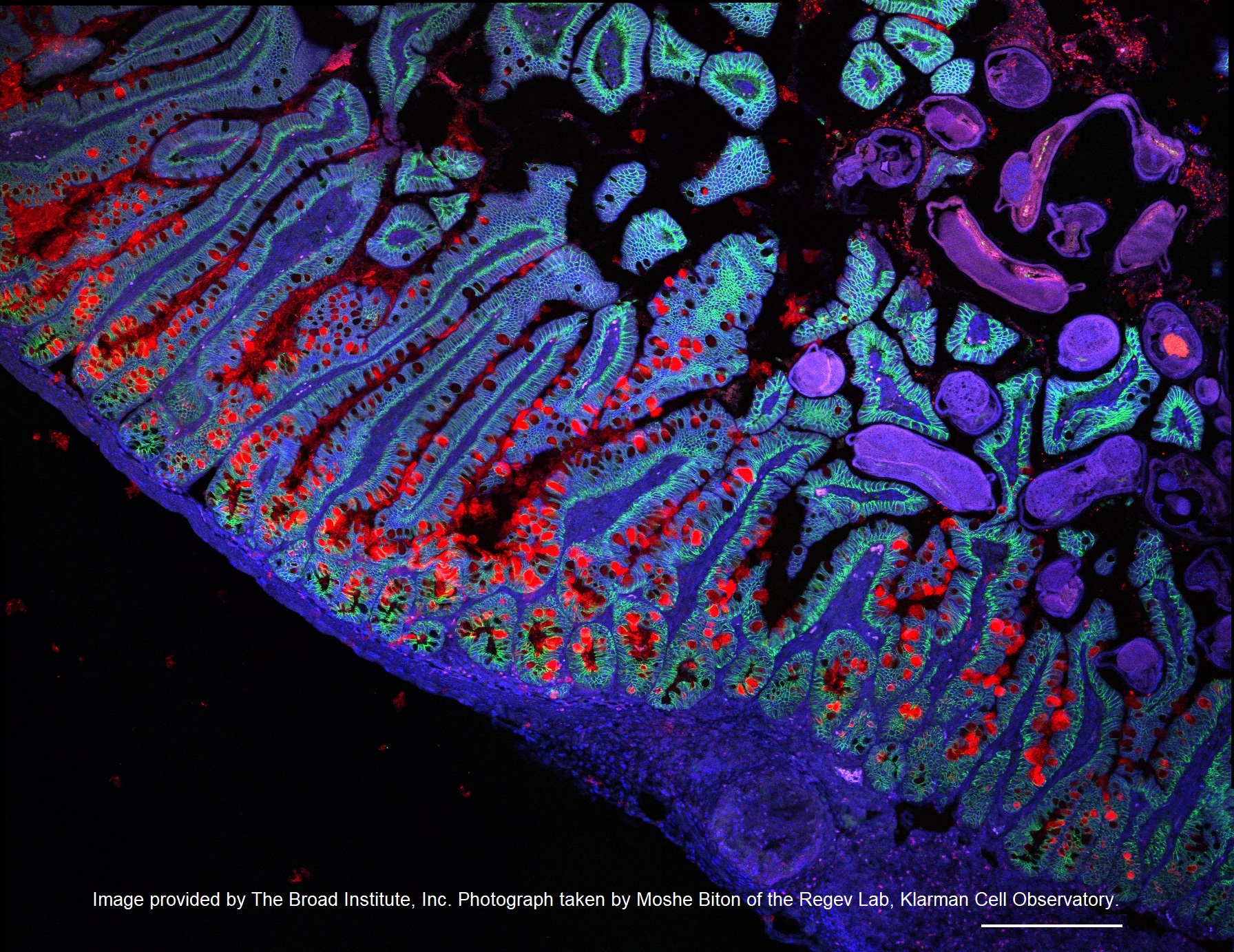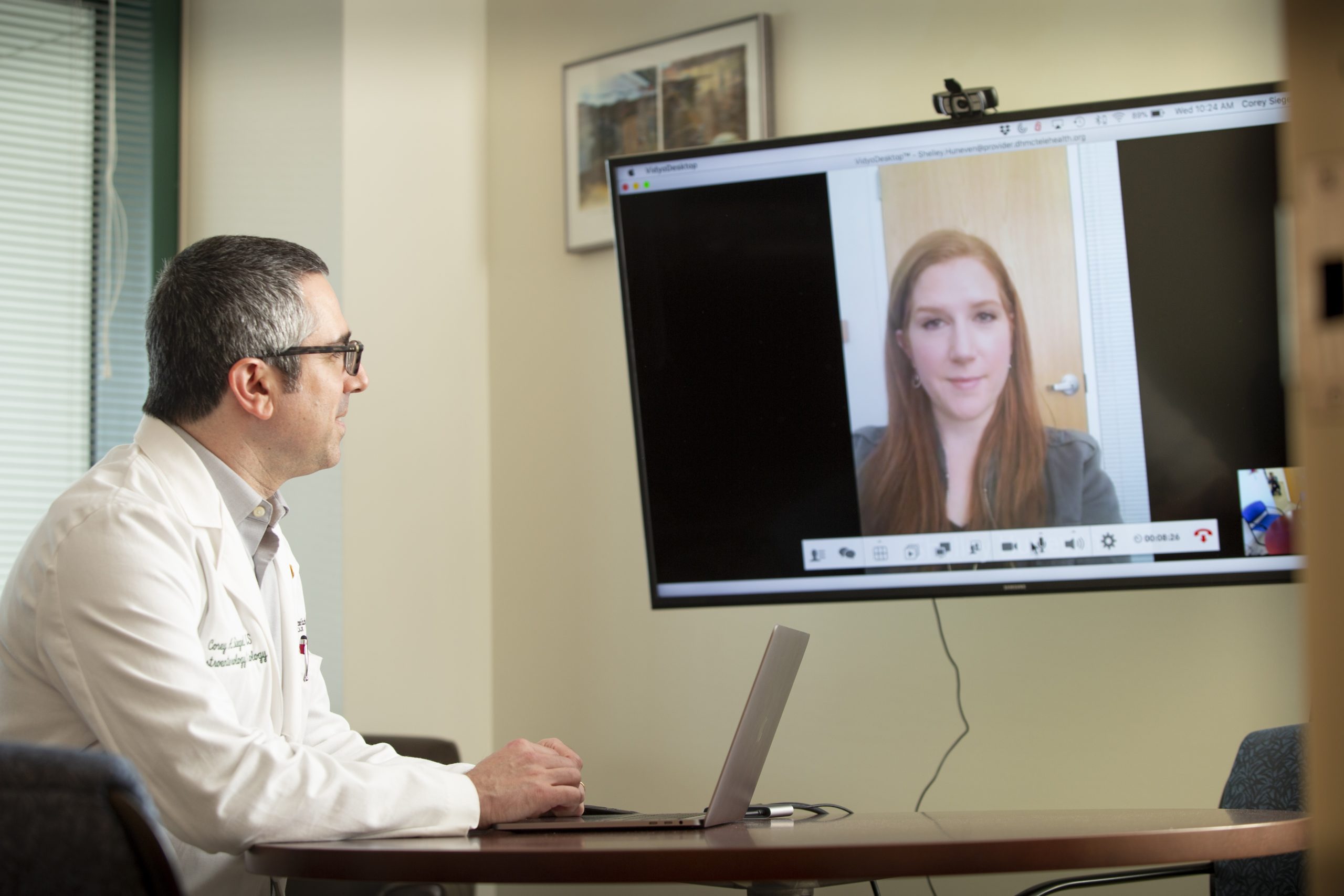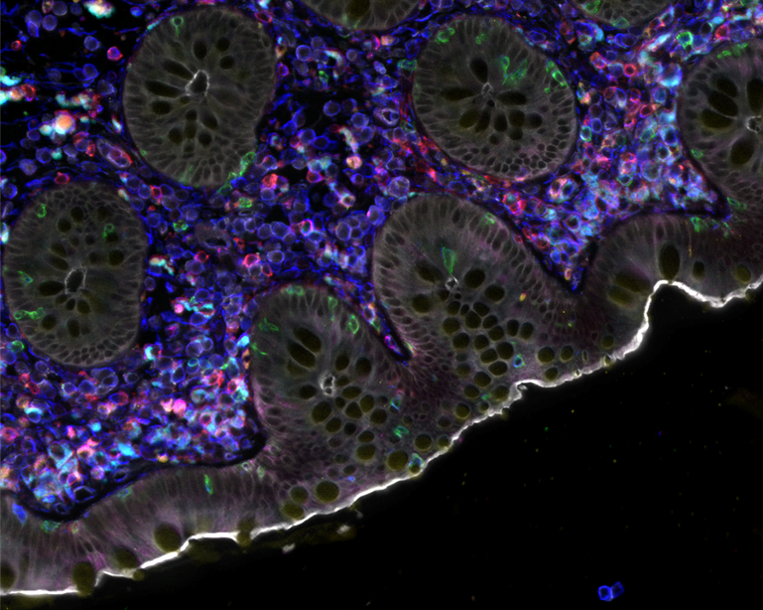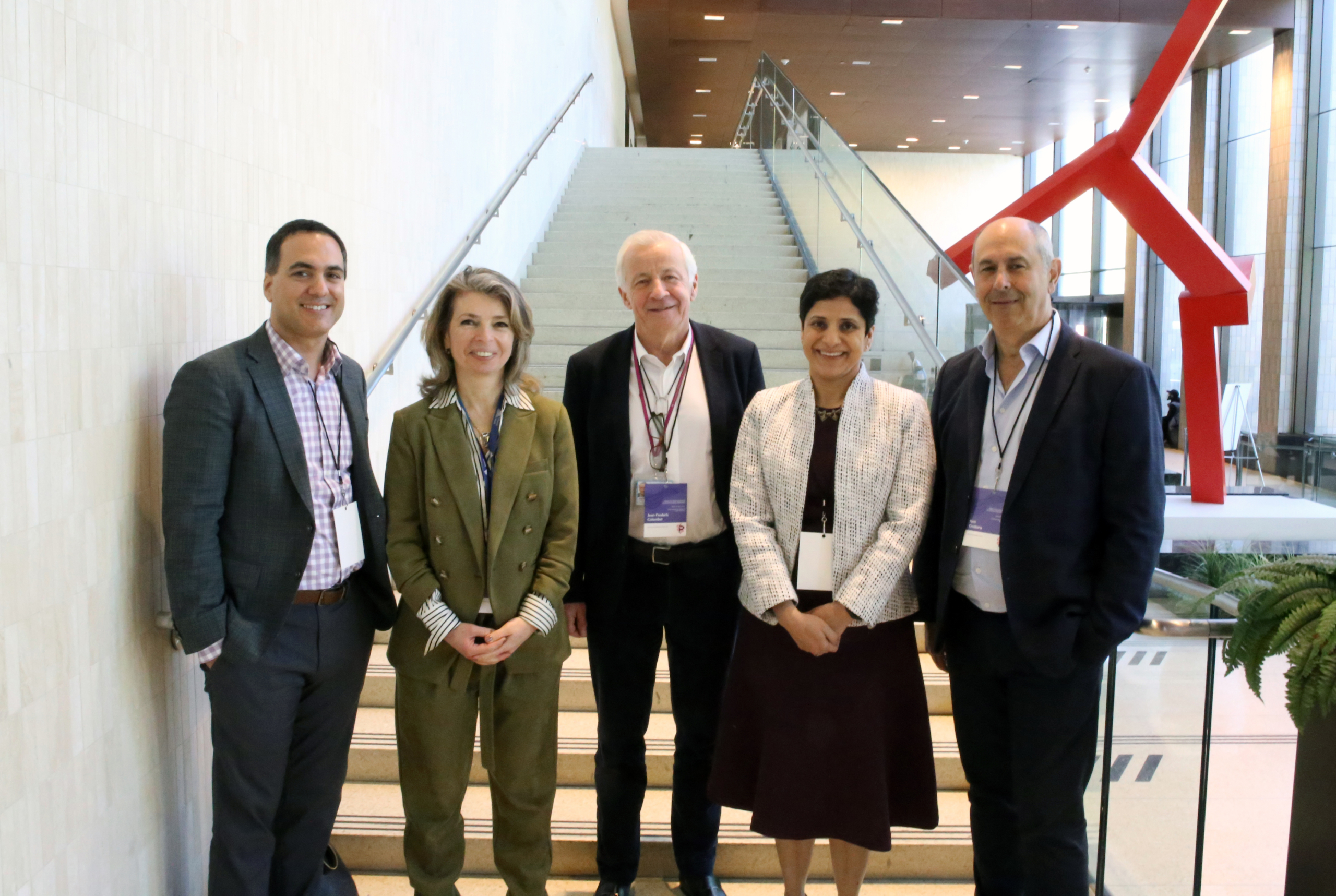Crohn’s Disease
Finding a Cure for Crohn’s Disease

Finding a Cure for Crohn’s Disease
Helmsley is the largest private philanthropy focused on Crohn’s disease, a complex, chronic inflammatory bowel disease that impacts more than 2 million people around the world. We are committed to addressing the unmet needs of people living with the disease, investing in research and technologies that will improve care and treatment for patients, and finding a cure.
Collaboration is essential to achieving our goals. We partner with organizations to support new research and ideas, and have built a network of researchers, institutions, and organizations working to find a cure for Crohn’s disease. We encourage our grantees to tap into this network, work together, and share ideas.
Our work focuses on funding in five key and interrelated areas: prevention, disease management, therapeutics, diagnostics, and disease biology.

The causes of Crohn’s disease involve a complex interplay among a patient’s genetic makeup, their immune system, and environmental factors, but the details are poorly understood. We support research to uncover further its root causes and identify how the disease develops.
The number of people living with Crohn’s disease is on the rise globally, particularly in newly industrialized countries across Africa, Asia, and South America, where previously there were few cases. Studying the factors driving this increase could provide important new insights into its causes and identify how the disease develops.
Diet plays a major role in Crohn’s disease. We fund research to better understand the effects of different foods on intestinal health, and on gut microbes, which are known to play a role in the disease, and to guide dietary choices that will benefit patients.

Accessible, accurate, non-invasive, and cost-effective diagnostics will enable more precise treatment decisions as well as timely monitoring for people with Crohn’s disease – which can inform further fine-tuning of therapeutic plans. Helmsley funding supports the development of biomarkers, indices and standards, patient reported outcomes, imaging modalities, and other novel technologies and devices, to improve personalized care and lead to better outcomes.

About half of Crohn’s disease patients do not respond to available therapies, so the need for new and more effective treatments is critical. Helmsley invests in research to understand the mechanisms underlying the disease and to identify and test novel therapies to accelerate the development of new treatments.
As the underlying mechanisms driving the disease are thought to vary among patients, individualizing patient treatment is a priority in Crohn’s disease. Investigating new therapeutics and optimizing existing treatment regimens will allow for improved patient outcomes.

Once a person is diagnosed with Crohn’s disease, they are met with a lifelong challenge that requires daily action and care to help with managing their disease. Patients deserve easily accessible, high-quality care built on informed, collaborative decision-making with their providers.
Patients and their caregivers need better tools and resources which are accessible for all regardless of geography. This includes leveraging technology to improve quality of life, monitoring symptoms to detect and predict flares, and improving access to mental healthcare resources, which can help mitigate the stress that is often caused by dealing with a chronic disease like Crohn’s.

Research into how environmental factors imprint on biological processes like gene expression may help reveal underlying causes of Crohn’s disease.
Breakdown of the intestinal mucosal barrier, and loss of the ability to self-repair if damaged, is a sign of Crohn’s disease and its complications.
The link between a dysregulated immune response and environmental and systemic factors such as the microbiome may be key to understanding the pathogenesis of Crohn’s disease.

January 16, 2026

January 14, 2026
August 28, 2025
The PIANO (Pregnancy Inflammatory bowel disease And Neonatal Outcomes) Consensus Group has developed the first international consensus guidelines on management of pregnancy for patients with inflammatory bowel disease (IBD), which includes Crohn’s disease and ulcerative colitis. Experts across six continents collaborated to address urgent clinical questions. The team is led by Uma Mahadevan, MD, and Millie D. Long, MD, MPH,…
May 20, 2025
Each year on May 19th, we unite with the global community to raise awareness for people with inflammatory bowel diseases (IBD), which includes Crohn’s disease. As in years past, this World IBD Day, the Helmsley Building in New York City is lit purple as a symbol of solidarity with patients who have IBD. This year, we also partnered with our…
January 21, 2025
For the past 6 years, the Helmsley Charitable Trust has convened researchers of the Gut Cell Atlas Crohn’s Disease Consortium (GCA) to share their progress in cataloging cell types and their signals in the intestine of Crohn’s disease (CD) patients. By generating this searchable cellular atlas of diseased tissue – and comparing it to that of healthy tissue – researchers…
January 15, 2025
Crohn’s disease is an auto-inflammatory disorder that affects the gut. People with Crohn’s disease must manage chronic pain, fatigue, and severe complications, such as intestinal blockages and ulcers. The time taken to diagnose a person with Crohn’s disease is critical in preventing the development of more severe complications. Helmsley supports innovative research aimed at improving improves our understanding of the…
November 7, 2024
GLASGOW, SCOTLAND November 7, 2024 – Researchers at the University of Glasgow have secured more than $3m to study the role the gut microbiome plays in post-operative outcomes for patients with Crohn’s disease.
August 15, 2024
NEW YORK, August 15, 2024 – In a recent innovation for Crohn’s disease treatment, researchers from the Stenosis Therapy and Anti-Fibrotic Research (STAR) consortium have developed reliable methods to measure intestinal strictures using both MRI and CT imaging. This advancement, published in Radiology, marks a significant step toward effective medical therapies for Crohn’s disease-related intestinal strictures.